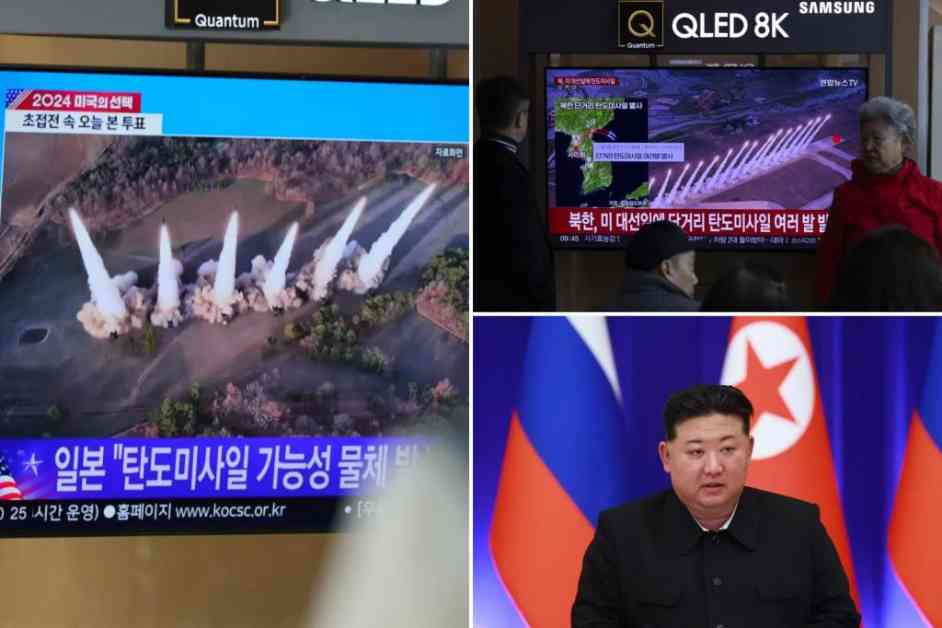North Korea recently launched a series of missiles into the sea, raising concerns among its neighboring countries just hours before the US presidential election. Japanese Defense Minister Gen Nakatani reported that at least seven missiles were fired, traveling up to 400 kilometers and landing in the waters between the Korean Peninsula and Japan. This act has been condemned for threatening the peace and safety of Japan, the region, and the international community.
South Korea also detected multiple missile launches by North Korea, prompting an increase in surveillance readiness to protect key facilities, including US military bases. These launches come shortly after North Korean leader Kim Jong Un oversaw a test of their newest intercontinental ballistic missile aimed at the US mainland.
In response to these provocations, the United States, South Korea, and Japan conducted a trilateral drill with a B-1B bomber to demonstrate a show of force. However, North Korea’s actions have been criticized by Kim’s powerful sister, Kim Yo Jong, accusing rivals of escalating tensions with military threats.
There are concerns that North Korea may conduct its seventh nuclear test, as indicated by South Korea’s military intelligence agency. Experts suggest that North Korea is using these displays as a way to gain leverage and concessions, possibly seeking sanctions relief.
The ongoing tensions between North Korea and other countries have heightened fears of a potential conflict. Reports indicate that North Korean soldiers are preparing to join Russia’s fight against Ukraine, marking a significant development since the Korean War. South Korean and European Union officials have expressed concerns about technology transfers between Russia and North Korea, which could further destabilize global peace and security.
In response to North Korea’s nuclear threats, joint military exercises between South Korea, the US, and Japan have been intensified. North Korea defends its nuclear and ICBM programs as necessary measures against perceived threats from the US, while the international community remains vigilant about the situation.
The recent missile launches and military activities by North Korea underscore the volatile nature of the region and the potential for further escalation. It is essential for diplomatic efforts to be prioritized to prevent a full-blown conflict and maintain stability in the Korean Peninsula and beyond.

